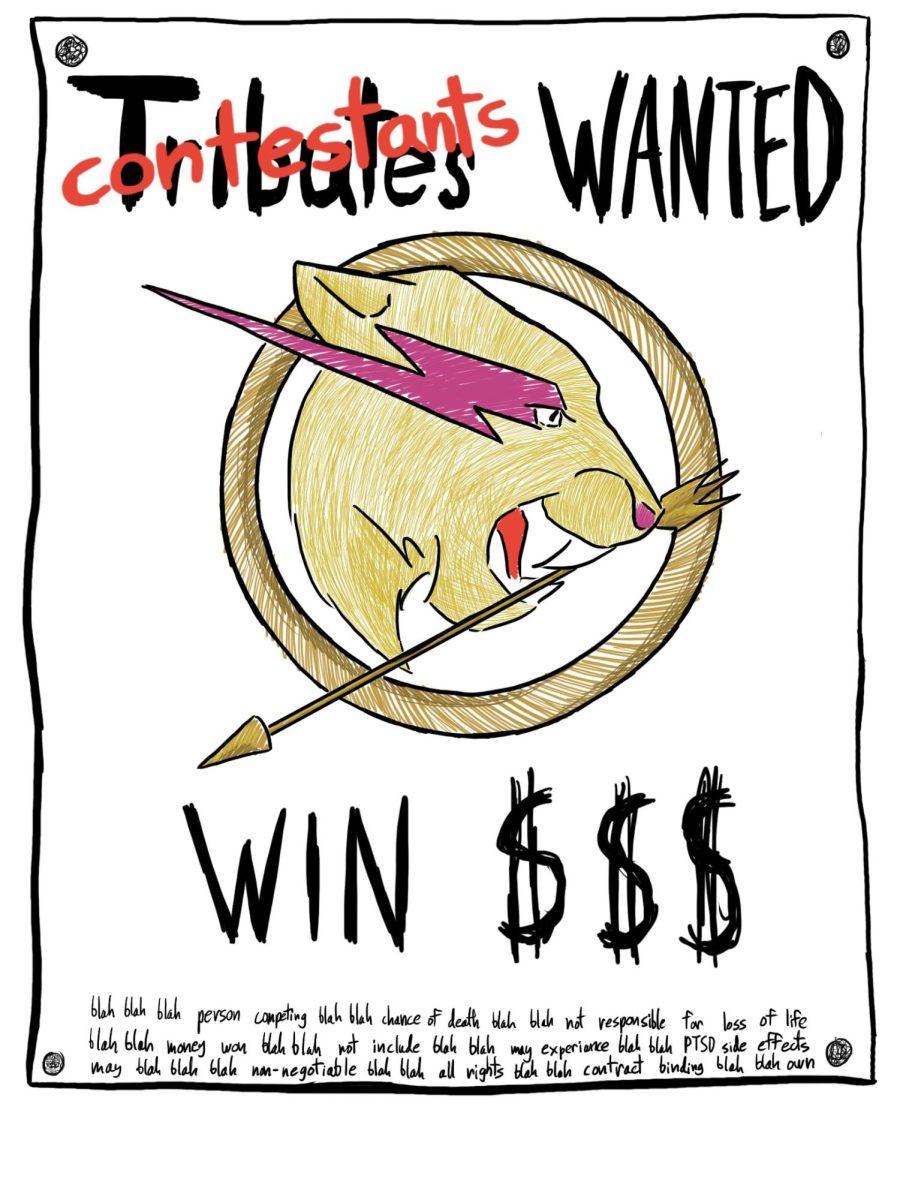I’ll be honest. Although I admit I am a chronic procrastinator and often tend to ignore my own advice, I am a senior and have huge long-term assignments in two of the classes for my major this semester. Through years of ridiculous assignments, enduring 18-hour semesters and professors’ force, I have uncovered many seemingly obvious techniques that can be used to help you knock out long assignments and minimize stress.
Assuming you follow these guidelines, these tips should help. With the end of the year all-too-rapidly approaching, now is the ideal time to learn how to best complete long assignments and get through the many obstacles that will be thrown at you in the whirlwind of the final month before summer.
1. Attend class
The first step is”¦go to class! In class, you often receive extra directions and tips for the big projects, papers and long assignments. Take advantage of this.
Additionally, no matter how much I hate to admit it, regular class attendance makes comprehending and remembering material for the class much easier. Although class may feel like a waste of time when you could be doing something more fun or spending your day in a “better” way, better knowledge of the relevant material will contribute to just about any assignment, making it easier to recall information and reducing initial research and reading. Sometimes professors even give students work time during class! As an added bonus here, you have your professor and classmates as resources for assistance.
2. Do not procrastinate
Heck, I know we are all guilty of this at some point in our scholastic careers, and sometimes we are too busy with everything else to get started ahead of time, so long assignments move lower on our “list of things to do” than perhaps it should. However, a sure-fire way to knock out long assignments with minimal stress is, of course, starting in advance. Assignments often take longer than anticipated, and it’s easy to run over the deadline. Jamming in a big project in one night can also induce freak-outs, breakdowns, mental blocks and reduced health, not to mention the jitters from the ridiculous amounts of caffeine required to pull an all-nighter.
Lastly, if you don’t procrastinate, you can produce several drafts, which you and/or someone else can edit. If you complete enough in advance, professors often offer to look over your draft to offer opinions, edits and tips for improvement. This is obviously a huge help because they are the ones in charge of your final grade. And not only will the quality of your work improve, the professor will see you really care and put effort into it, which could also improve your grade, including your overall grade (they would bump you up if you are on the edge, and it can increase participation grades).
3. Be productive and focus
Don’t take unnecessarily long steps to prepare yourself to begin. Dive into it headfirst because starting is usually the hardest part. Doing research beforehand is often necessary and a good idea, but know when to stop. If you spend too long preparing or focusing on little details, it’s going to take you much longer.
I am guilty of spending a lot of time on small details, and I can say with 100 percent certainty that much of this will not greatly affect or enhance your grade, and you’ll end up spending twice as long as usual. A little perfectionism isn’t necessarily a bad thing, but perfectionism on a deadline doesn’t always work.
Aside from this, focusing is huge in productivity. You can probably guess what I’m going to say here: no Facebook, social networking or visiting non-relevant websites. Additionally, limit texting and looking at your phone, snack breaks, and, if you smoke, limit breaks for that, too. No TV in the background, either. You may be able to multitask, but it inevitably limits your concentration. Studying with friends should be productive, and avoiding gossip time can be difficult.
Finally, in order to be productive and focus, being sober and not under the influence of anything (other than caffeine, obviously) is pretty essential. One drink usually induces drowsiness, even though it may be slight, and you won’t be on your A-game. One drink creates temptation for another, and it just goes downhill from there.
Being buzzed, focused and confident that you are turning in quality work do not usually go hand in hand. And I know that people may think that certain substances may enhance the interest factor of long readings and creative projects, but most of the time, memory and focus are also inhibited.
Some prescription and cold medicines also are not conducive to productive, alert, sharp mental states. Obviously, Nyquil is a bad idea, but personally, I’ve had bad experience with some kinds of sinus medications (like Mucinex DM) as well. Many prescription drugs mess with your mental state, too. Painkillers, cough syrup or even certain kinds of antibiotics can greatly affect you.
4. Make lists, and use a planner
Lastly, planning and organization are essential in properly knocking out long assignments. Conceptualizing all you have to do well in advance is a great way to decrease stress and see what you have to do in the upcoming weeks and months, so you will not be surprised by any next-day deadlines.
Other advice from personal horrific experiences
SAVE YOUR WORK!!! Like, every two minutes. Working for hours, exerting intense brainpower through thought and effort and the accompanying endless frustration is difficult enough. Getting almost finished and then losing it all, or a great deal of it, when the technology fails is among the most horrible things you can experience in academia. An intense freak-out, small mental breakdown and even a screaming/sobbing session either in parts or in combination will undoubtedly occur. Trust me “” I’ve been there.
A great deal of effort is required to do it in the first place, but having to redo your project kills psychologically, and the second version almost never seems as good as the original, which is impossible to remember verbatim. Back up everything.
Create a Dropbox account and save all your stuff in it so you can access it from anywhere. If something happens to your laptop or the computer you are working on, saving on Dropbox ensures that you will still have your work, and you can access it from wherever you choose.
Also, definitely do not…
…wait until the last minute, underestimate the time it will take, work past the deadline and then make up some ridiculous excuse for your professor in a panic. Professors get annoyed by excuses, often knowing that they are less than truthful, and may judge your dedication and studiousness, regarding you in a more negative light. Then, someday, if you have a legitimate excuse, it will not be believed or accepted.





